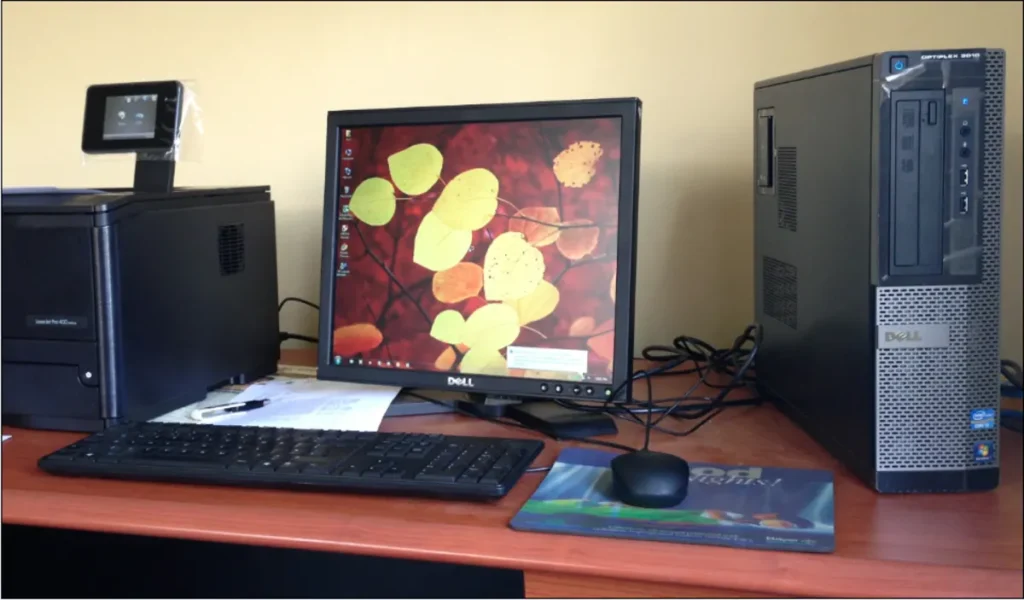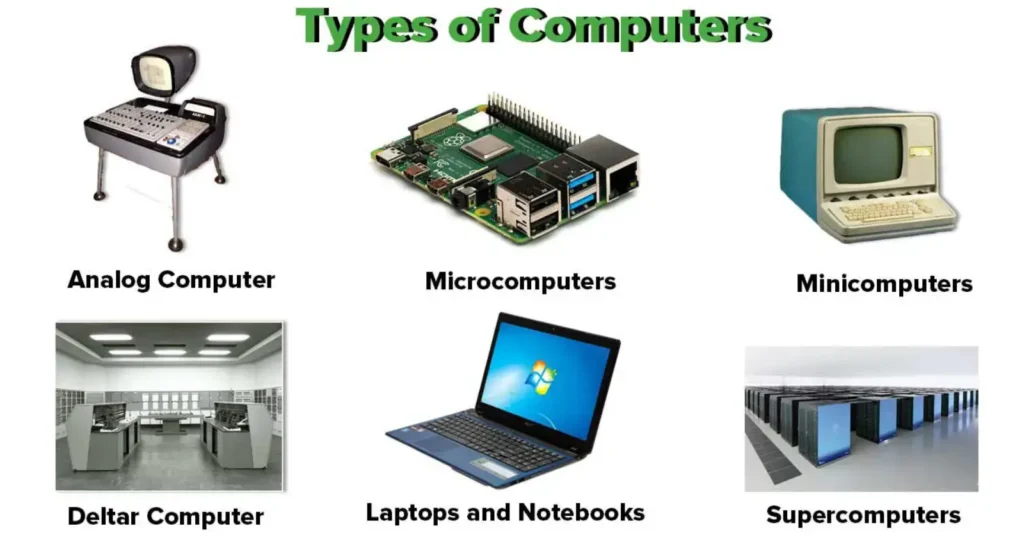COMPUTER FULL FORM: Understanding What This Term Means and Its Importance
Computers are ubiquitous in modern society, and they have become an essential part of our daily lives. However, have you ever wondered what the term “computer” actually means, and what it stands for? In this article, we will delve into the history and definition of computers and provide a detailed explanation of the computer full form. We will also discuss the significance of computers and their impact on various aspects of society.
Read Other Full Forms

What is the Full Form of a Computer?
The full form of computer is a “Common Operating Machine Purposely Used for Technological and Educational Research“. This term was coined in the late 1940s and early 1950s when computers were first being developed. At that time, computers were used primarily for scientific research and data processing. The term “computer” itself is derived from the Latin word “computare”, which means “to calculate”.
The History of Computers
The history of computers can be traced back to the early 1800s when mathematician Charles Babbage first conceived of the idea of a programmable machine that could perform complex calculations. However, it was not until the mid-20th century that computers became widely available and started to revolutionize various industries.
The first electronic computer, the ENIAC, was developed in the 1940s by John Mauchly and J. Presper Eckert. This massive machine used vacuum tubes to perform calculations and was used primarily for military purposes during World War II. Over time, computers became smaller, faster, and more powerful, leading to the development of personal computers and eventually, smartphones and other mobile devices.
Types of Computers
There are several types of computers, each with its own unique features and capabilities. These include:

- Personal computers (PCs): These are computers designed for individual use, typically consisting of a desktop or laptop computer.
- Mainframe computers: These are large, powerful computers designed for use by large organizations and government agencies.
- Supercomputers: These are the most powerful computers in the world, used primarily for scientific research and complex calculations.
- Minicomputers: These are smaller versions of mainframe computers, used primarily by small to medium-sized businesses.
How Do Computers Work?
Computers work by processing data and executing instructions using a series of electronic components, including a central processing unit (CPU), memory, and input/output devices. The CPU is responsible for performing calculations and executing instructions, while memory stores data and programs for quick access. Input/output devices, such as keyboards and displays, allow users to interact with the computer and view output.
Advantages of Computers
Computers offer several advantages, including:
- Increased productivity: Computers can perform tasks quickly and accurately, allowing users to complete work more efficiently.
- Improved communication: Computers enable users to communicate with each other from virtually anywhere in the world.
- Access to information: Computers provide access to a vast amount of information and resources, making it easier to learn and stay informed.
- Automation: Computers can automate repetitive tasks, freeing up time for other activities.
Disadvantages of Computers
Despite their many benefits, computers also have several disadvantages, including:
- Security risks: Computers can be vulnerable to cyber attacks and other security threats.
- Addiction: Excessive use of computers can lead to addiction and negative effects on mental health.
- Dependence on technology: Over-reliance on computers can lead to a loss of essential skills and human interactions.
- Environmental impact: The production and disposal of computers can have a significant environmental impact.
The Importance of Computers in Different Fields
Computers have had a profound impact on various fields, including:
Computer Applications in Business
Computers have revolutionized the way businesses operate, allowing for more efficient operations, improved data management, and increased productivity. Business applications of computers include accounting, inventory management, customer relationship management (CRM), and enterprise resource planning (ERP) systems.
Computer Applications in Education
Computers have become a vital tool in education, providing access to a wealth of information and resources. They are used in classrooms for multimedia presentations, online learning, and collaborative projects. Computers are also used in research and data analysis, making it easier to analyze complex data and draw conclusions.
Computer Applications in Healthcare
Computers have transformed the healthcare industry, improving patient care and increasing efficiency. They are used in electronic health records (EHRs), medical imaging, and telemedicine. Computers also enable medical professionals to access the latest research and best practices, leading to better treatment outcomes.
Computer Applications in Entertainment
Computers have revolutionized the entertainment industry, providing access to movies, music, and video games. They are also used in the production of films and music, allowing for advanced editing and special effects.
Future of Computers
The future of computers is exciting, with many new developments on the horizon. Artificial intelligence (AI) and machine learning are expected to become even more prevalent, leading to more advanced automation and personalized experiences. Quantum computing is also being explored, which could revolutionize computing power and open up new possibilities for research and analysis.
Conclusion
In conclusion, computers have become an essential part of modern life, with a profound impact on various fields. The computer full form, “Common Operating Machine Purposely Used for Technological and Educational Research,” highlights the origins and purpose of this ubiquitous technology. While computers offer many advantages, there are also potential disadvantages and challenges to be aware of. The future of computers is promising, with new technologies and innovations that are set to shape the world in profound ways.
Frequently Asked Questions
Q.1 What is the history of computers?
The history of computers dates back to the early 1800s when mathematician Charles Babbage first conceived of the idea of a programmable machine. The first electronic computer, the ENIAC, was developed in the 1940s and was used primarily for military purposes.
Q.2 What are the advantages of computers?
Computers offer several advantages, including increased productivity, improved communication, access to information, and automation.
Q.3 What are the disadvantages of computers?
The disadvantages of computers include security risks, addiction, dependence on technology, and environmental impact.
Q.4 What is the future of computers?
The future of computers is promising, with developments in artificial intelligence, machine learning, and quantum computing set to revolutionize computing power and open up new possibilities for research and analysis.
Q.5 What are the applications of computers in healthcare?
Computers are used in electronic health records, medical imaging, telemedicine, and research and data analysis, leading to better patient care and increased efficiency.

